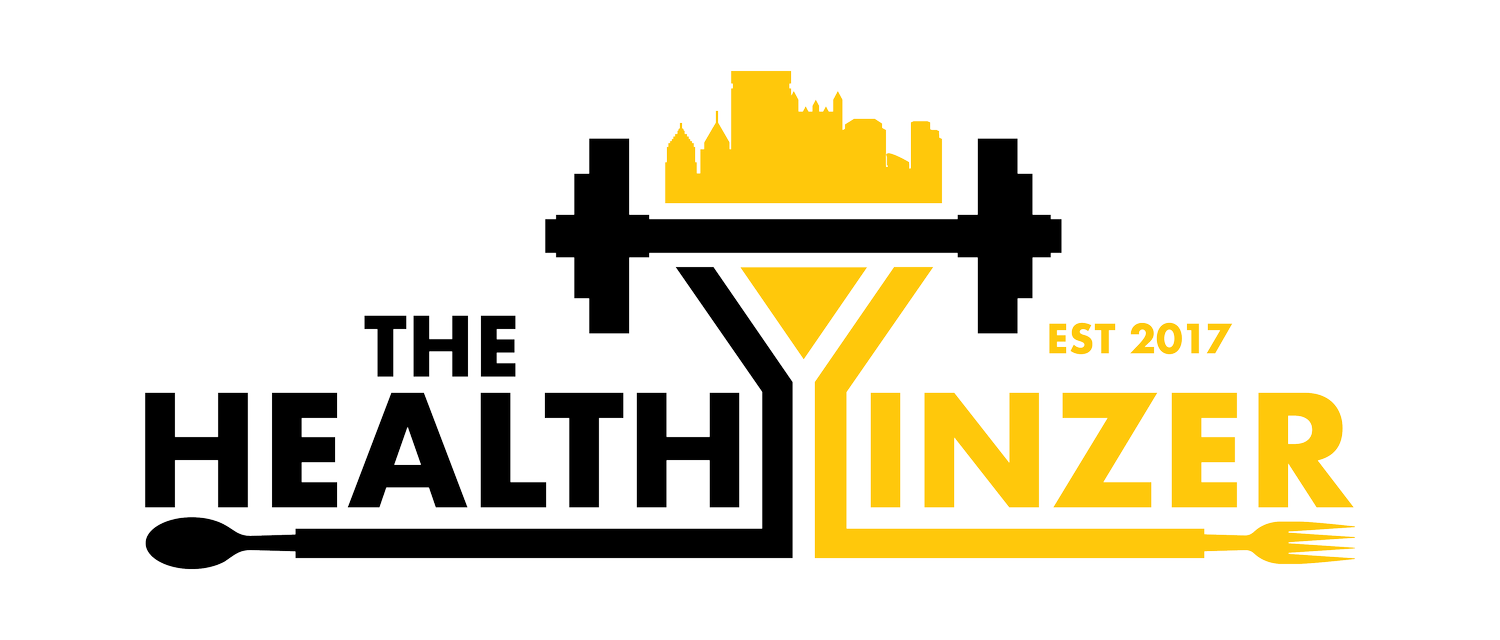Breaking Through Fitness Plateaus
Picture this: you're in Pittsburgh, cycling away in a high-energy class at LA Fitness, feeling the burn and loving it. One day, you're on the mat, breezing through your yoga class, and the next day, you're wondering why the same pedals that propelled you to glory last week now feel like they're made of lead. Welcome to the world of fitness plateaus, where your progress seems to take an unexpected…. coffee break.
Pittsburgh, my city where fitness is as varied as our beloved sandwiches at Primanti Bros., hitting a plateau is like navigating through downtown traffic – inevitable but manageable. It’s like going through the Squirrel Hill tunnels; you enter with momentum but sometimes find yourself crawling through, making little to no progress.
It's a stage in your exercise regimen where noticeable improvements in strength, endurance, or weight loss become as elusive as a sunny day in January!
It’s a world where your CrossFit enthusiasm has led to not one, not two, but three injuries this year alone…
Whether you're sweating it out in a CrossFit box, cycling to nowhere in your favorite gym, or just trying to crush your next PFL game! Yeah brooo! I’m here to guide you.
Lets explore what causes these plateaus, how to push past them, and how to do it with the same vigor as this Healthy Yinzer chasing down a New Year’s pretzel. Let's dive into understanding these plateaus and learn how to leap over them with the same enthusiasm we showed when the Steelers still had Big Ben….
The Science Behind Plateaus – The SAID Principle
Understanding the occurrence of fitness plateaus requires delving into the SAID principle – Specific Adaptation to Imposed Demands. This principle is rooted in exercise science and explains how our bodies adapt to the stresses placed upon them. Initially, when a new exercise regime is introduced, the body is forced to respond to these unfamiliar demands, leading to rapid improvements in fitness and strength. This phase is characterized by physiological changes such as muscle hypertrophy (increase in muscle size), improved cardiovascular efficiency, and increased neuromuscular coordination.
However, as the body becomes accustomed to these exercises, the rate of improvement diminishes. This is because the body, in its quest for efficiency and energy conservation, adapts to perform these exercises with less effort. Consequently, the same workout routine that once posed a significant challenge becomes less effective over time, leading to a plateau where progress in terms of weight loss, muscle gain, or cardiovascular fitness seems to stall.
Signs You've Hit a Plateau
Identifying a fitness plateau involves observing specific signs in your workout routine and physical progress. These include:
Decreased Strength Gains: Despite consistent training, you may find that your strength gains have stalled, and lifting the same weights doesn't offer the same challenge.
Stagnant Weight Loss: You may notice that your weight remains constant over an extended period, despite adherence to dietary and exercise plans.
Reduced Workout Efficacy: Activities that were once challenging, like running a specific distance or performing a set number of exercises, may start to feel easier, without corresponding improvements in fitness metrics.
The Influence of Lifestyle Factors
External factors such as climate and lifestyle choices can also contribute to fitness plateaus. For instance, in regions like Pittsburgh, where winter conditions can be harsh, we get like 40 days of actual sunshine so there might be a tendency to stick to indoor exercises, leading to repetitive workout routines. This lack of variety can further entrench the body in its adapted state, making it difficult to push past plateaus. Additionally, dietary habits influenced by consistent DoorDash can impact fitness goals.
And look… It's not just about the physical stagnation; there's a significant mental and emotional toll that comes with it. The frustration and demotivation accompanying a plateau are real and can impact even the most dedicated individuals.
The Mental Challenge: Staying in the Game
The mental aspect of dealing with a plateau is equally challenging. There's a battle in your mind between the urge to give up and the will to push through. It's normal to question the effectiveness of your routine or doubt your ability to achieve your goals. This mental block can be more daunting than the physical hurdle.
Overcoming the Plateau: Tips for Mental Resilience
Shift Your Focus: Instead of obsessing over the plateau, shift your focus to the parts of your routine that you enjoy. Whether it's the adrenaline rush after a good workout or the calm energy of a yoga session, remember WHY you started.
Set Small, Achievable Goals: Break your larger goals into smaller, more manageable ones. Celebrating these small victories can provide a sense of progress and accomplishment.
Embrace Variety: Sometimes, a mental refresh is needed. Try a new workout routine, experiment with different foods for your diet, or change your exercise environment. A change can be as good as a rest.
Mindfulness and Patience: Practice mindfulness and patience. Understand that progress in fitness is not always linear. There will be ups and downs, and that's perfectly normal.
Seek Support: Talk to others who might be experiencing the same. Sometimes, just knowing you're not alone in this can be a huge morale booster.
A Fresh Perspective
Sarah came to me after feeling unhappy about her current situation. She was working out at a local gym she saw great results at first: losing weight, feeling more energetic, and gaining strength. However, as time passed, her progress ground to a halt. She was doing everything right – or so she thought – but the scale refused to budge, and her strength gains plateaued. This stagnation led to mounting frustration and a significant dip in her motivation. She started questioning the efficacy of her routine and even considered giving up.
The first thing we did was reassess her entire routine. We looked into her workout regimen, dietary habits, and even her sleep patterns and stress levels. It became apparent that while Sarah was dedicated, her body had adapted to her routine, and it needed a new challenge. We introduced varied workout techniques, incorporating PHAT (Peripheral Heart Action Training) and Resistance band training variations. Nutrition-wise, we tweaked her diet to focus on more whole foods and adjusted her macronutrient balance to rekindle her metabolism.
After making some changes to her workout routine, Sarah didn't see immediate results. But this taught her an important lesson about the importance of being patient and persevering. Gradually, we added boxing drills and more intense workouts, and Sarah started to notice improvements. She not only began to lose weight but also felt stronger and more energetic. What was even more remarkable was the change in her mindset. She learned to celebrate small victories and not obsess over numbers on a scale. Sarah also understood the value of listening to her body and adjusting her routines accordingly.
Its not just about changing what you do; it's about changing how you think and approach your fitness journey. With the right guidance, dedication, and a willingness to adapt, breaking through a plateau is not just possible but can be a turning point towards a more fulfilling fitness experience. Sarah is on her way to 30 lbs lost and almost at her goal weight!
Strategies to Overcome Fitness Plateaus
Whether you're a gym regular or someone just starting out, these tactics can help you break through the plateau and reignite your progress.
1. Altering Workout Intensity and Types
The human body is incredibly adaptive, and over time, it becomes more efficient at performing the same exercises. To push past this, you need to surprise your body with new challenges.
Increase Intensity: If your workouts have become comfortable, it's time to ramp up the intensity. This can be achieved by increasing weights, adding more reps, or reducing rest periods between sets.
Vary Your Workouts: Avoid monotony in your routine. If you're a runner, mix in cycling or swimming. If you're into weightlifting, try incorporating bodyweight exercises or yoga. The goal is to keep your body guessing.
Try High-Intensity Interval Training (HIIT): HIIT involves short bursts of intense exercise followed by brief periods of rest. This type of training can boost metabolism and is effective in burning fat.
2. Changing Dietary Habits
What you eat plays a crucial role in breaking through a fitness plateau. Sometimes, making small changes in your diet can lead to significant improvements in your fitness results.
Reassess Your Caloric Intake: If you've lost weight, your body now needs fewer calories to function than it did at a heavier weight. Adjust your calorie intake to suit your current body weight.
Alter Your Macronutrients: Experiment with your balance of proteins, fats, and carbohydrates. For instance, increasing protein intake can aid muscle repair and growth, especially if you're doing a lot of strength training.
Stay Hydrated and Focus on Whole Foods: Ensure you're drinking enough water and eating a balanced diet rich in whole foods. Proper hydration and nutrition are key to optimal body performance.
3. Understanding the Role of Rest and Recovery
Rest and recovery are as important as the workouts themselves. Without adequate rest, your body can't repair and grow stronger.
Take Adequate Rest Days: Incorporate rest days into your workout schedule to allow your muscles to recover and prevent overtraining.
Focus on Sleep: Aim for 7-9 hours of quality sleep each night. Sleep is when a lot of the body's recovery and muscle-building takes place.
Try Active Recovery: On rest days, consider light activities like walking or gentle stretching. This can help in muscle recovery and keep you active without overexerting your body.
Social Support
In the world of fitness, the journey is as crucial as the destination. Regular check-ins and a robust support system play a vital role in navigating this journey, especially when facing the inevitable plateaus. Personal coaching and being part of fitness communities are not just about guidance; they are about building a network of motivation and accountability.
Personal coaching, like the services I offer in Pittsburgh and virtually, provide tailored advice and adjustments to your fitness routine. Ensuring that your plan evolves as you do. Similarly, joining fitness communities, whether it's a local running club or a group class at the gym, offers a sense of camaraderie and shared goals. These networks can be a source of inspiration, especially on days when your motivation is waning.
As a Personal Trainer in Pittsburgh, I offer personalized coaching services that are designed to adapt to your unique needs. Through regular check-ins, we can assess your progress, identify potential plateaus, and tweak your plan for optimal results.
Identifying Personal Plateaus
Recognizing when you've hit a plateau is the first step in overcoming it. Here’s a mini-guide to help you self-identify a fitness plateau:
Have your strength gains or endurance levels plateaued despite consistent training?
Have you noticed a halt in weight loss or muscle gain, even with a steady workout and diet regime?
Are you feeling a lack of motivation or enthusiasm towards your fitness routine?
If you answered 'yes' to any of these questions, you might be experiencing a plateau. Understanding your body's responses is crucial in adapting your fitness plan effectively.
To sum up, breaking through a fitness plateau is a multifaceted process involving physical, mental, and emotional resilience. Altering workout intensity, changing dietary habits, understanding the importance of rest, and recognizing the role of consistent support are key strategies in this journey.
If you're in Pittsburgh and facing a fitness plateau, remember, you're not alone. Take the first step in transforming your fitness journey by reaching out for personalized guidance and support. Together, we can tailor a plan that suits your unique needs and goals, helping you break through those plateaus and achieve the results you've been striving for. Let's tackle these challenges head-on and pave the way for a healthier, stronger you.

